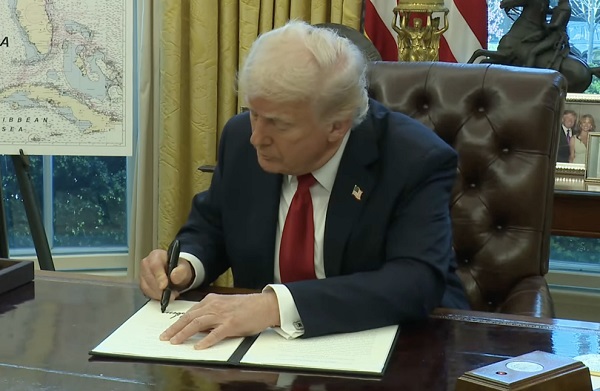Members of the Chicago Teachers Union in Springfield at the Illinois State Capitol
From The Center Square
Lawmakers, school advocates and teachers’ unions are taking swift action after President Donald Trump’s executive order to begin dismantling the Department of Education, one of his most controversial moves yet.
Opponents of Trump’s action responded with promises of legal retaliation. But supportive lawmakers may beat them to the chase, with U.S. Sens. Bill Cassidy, R-La., and Mike Rounds, R-S.D., each planning to introduce legislation to completely eliminate the department.
“I agree with President Trump that the Department of Education has failed its mission,” Cassidy said. “Since the Department can only be shut down with Congressional approval, I will support the President’s goals by submitting legislation to accomplish this as soon as possible.”
Rounds said he is already discussing legislation with Secretary of Education Linda McMahon “that would return education decisions to states and local school districts while maintaining important programs like special education and Title I.”
Trump already shrunk the department’s workforce to half its size last week. His executive order Thursday directs McMahon to “take all necessary steps to facilitate the closure of the Department of Education and return authority over education to the States and local communities while ensuring the effective and uninterrupted delivery of services, programs, and benefits on which Americans rely,” as far as legally possible.
For now, that means the department like enforcing Title IX and civil rights laws, funding special education and disability programs, and overseeing student loans and Pell grants, Trump said. On Friday, Trump said the Small Business Administration would take over the nation’s student loans.
But the ultimate goal is to redistribute these programs among other federal departments and agencies, which would require congressional approval.
School choice organizations are praising Trump’s plan to eventually eliminate the Education Department as a necessary development that will save taxpayers’ money and return power to states, local governments, and parents.
“These are the first steps towards reforming an American education system that should have always been a state and local proposition,” Parents Defending Education Vice President Sarah Parshall Perry said. “We are looking forward to continuing our mission to empower parents and students in educational environments that are once again value-neutral, and devoid of radical ideologies”
Supporters also point to how the department has spent $3 trillion taxpayer dollars since its creation by congressional legislation in 1979. Meanwhile, U.S. students rank 28 out of 37 member countries in the Organization for Economic Cooperation and Development, and standardized test scores have remained flat for decades.
ACE Scholarships, which provides aid to lower-income K-12 students, said in a statement that the Department of Education’s efforts have been “a wasteful distraction” and that the president’s “new approach” to education “puts children first by increasing choice and empowering parents instead of Washington bureaucrats.”
But public school advocacy organizations and teachers unions are already preparing lawsuits against what they say is an unconstitutional move.
Randi Weingarten, president of the American Federation of Teachers, which represents 1.8 million pre-K through 12th-grade teachers, had a simple message for Trump after the executive order: “See you in court.”
The New York-based United Federation of Teachers stated that “we are working with our partners to file lawsuits to stop this executive overreach.”
Democracy Forward, a legal services nonprofit, is also planning to join the fight.
“We will be filing litigation against this action and will use every legal tool to ensure that the rights of students, teachers, and families are fully protected,” President and CEO Skye Perryman stated. “Since Inauguration Day, the Trump-Vance administration has been taken to court more than 100 times, and we will do it again this time.”
Trump opponents argue that dismantling the department will cause property taxes to spike nationwide, strain public school resources and could cause struggling schools to close, expanding class sizes in the remaining schools.
“Beyond the obvious issue that the Education Department can’t be eliminated without an act of Congress, Trump’s order is yet another wild and illicit power grab,” Co-President of Public Citizen Lisa Gilbert said. “Attempting to destroy the cabinet agencies tasked with promoting and improving education isn’t just irresponsible, it is immoral, and will hurt the very fabric of our nation, as we keep generations of students from achieving their full potential.”
The Education department provides roughly 10% of funding for public education, with the vast majority of funding coming from state and local taxes.
The majority of Americans also appear opposed to ending the department, with a Marist poll in early March showing 63% of U.S. residents either oppose or strongly oppose getting rid of the U.S. Department of Education, while 37% of residents either strongly support or support abolishing the department.
















